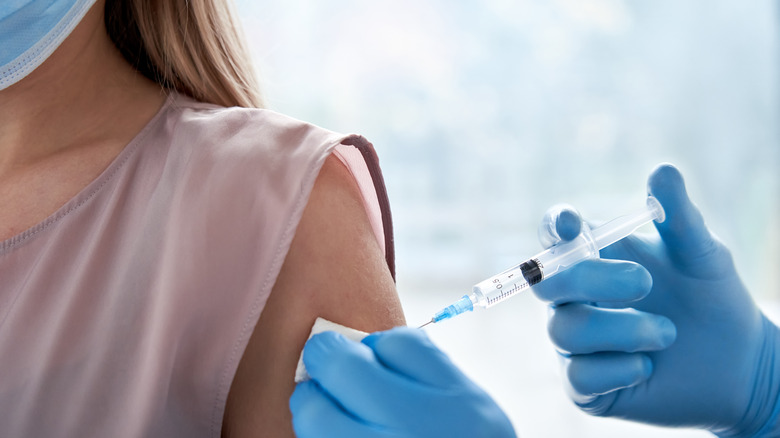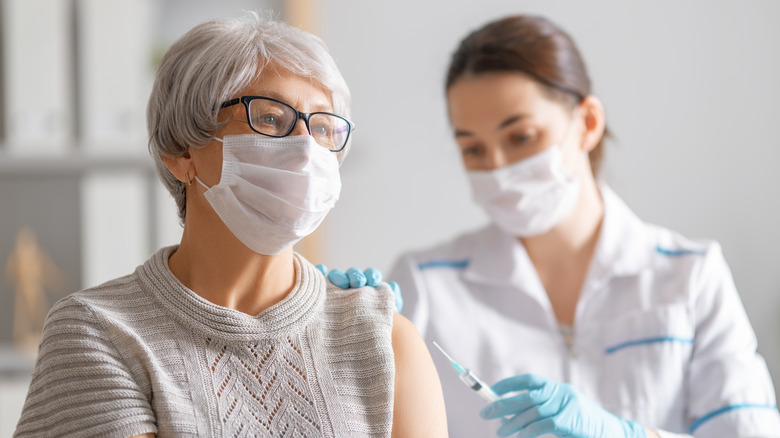Here's Who Isn't Eligible For A COVID-19 Vaccine
For months, Americans were only eligible to get the COVID-19 vaccine in phases and tiers. States chose their own phases and tiers based on recommendations by the Centers for Disease Control and Prevention, but on April 19, 2021, the tier system ended and eligibility was extended to almost everyone. However, there are still some people who are not yet eligible for the COVID-19 vaccine and some who may never be eligible.
As of this writing, anyone under the age of 16 is not eligible for the COVID-19 vaccine, but the Food and Drug Administration was expected to extend its Emergency Use Authorization to those 12-15 years of age for the Pfizer-BioNTech vaccine by the week of May 10, according to The New York Times. In addition, trials are still being conducted for children under the age of 12; CNN reports that Pfizer is expected to ask the FDA to authorize the vaccine for children 2-11 by September of 2021. Still, there are people who are not eligible for the COVID vaccine regardless of age.
These are the people who should not get the COVID-19 vaccine
Although getting as many people vaccinated as possible will help slow the spread of COVID-19, there are some people who will have to remain unvaccinated. Those who are allergic to any of the components contained in the three approved vaccines should not get it, according to Yale Health. Also, if you have ever had a severe reaction to any vaccine administered via injection and have ever experienced anaphylaxis, you should consult with your doctor before making a COVID vaccine appointment.
Yale Health also reports that people with autoimmune diseases or who are immunocompromised should also check with their doctor before receiving the vaccine. Each case should be considered on an individual basis with you and your doctor comparing the risks and benefits of vaccination.
Although there had been some questions about whether pregnant or breastfeeding women should get the vaccine, the CDC reported in late April of 2021 that they should, as pregnant women are at higher risk of developing severe COVID. Although the CDC admits that there was still limited data from clinical trials in pregnant and breastfeeding women, the government has a safety monitoring system in place that has been tracking the effects of the vaccine in pregnant women.
"Early data from these systems are preliminary, but reassuring. These data did not identify any safety concerns for pregnant people who were vaccinated or for their babies," the CDC states on its website.

